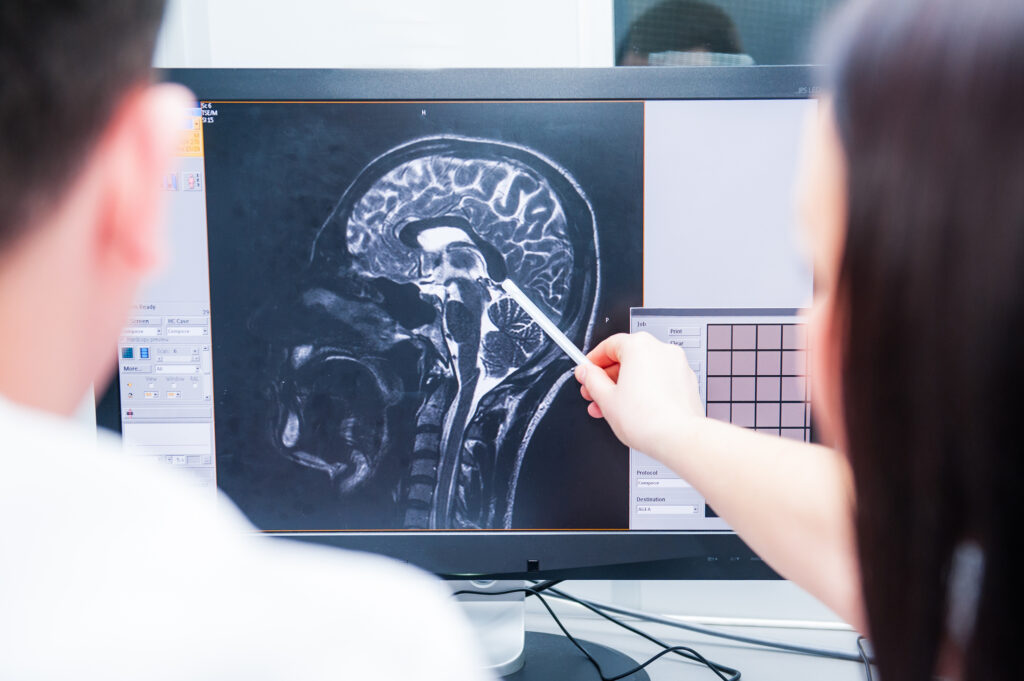Introduction
AI has emerged as a powerful tool in the healthcare sector, offering innovative solutions to longstanding challenges. AI consulting firms specialise in providing expertise, strategy, and implementation support to healthcare organisations aiming to leverage AI technologies. These firms help navigate the complexities of AI integration, ensuring that healthcare providers can effectively use AI to enhance patient outcomes, streamline operations, and advance medical research.
The Role of AI in Healthcare
AI technologies, including machine learning, natural language processing, and robotics, have numerous applications in healthcare. These technologies can analyse large datasets to identify patterns and make predictions, support diagnostic processes, personalise treatment plans, and automate administrative tasks.
Diagnostic Support
AI-powered diagnostic tools can process and analyse medical images, such as X-rays, CT scans, and MRIs, with high accuracy. These tools assist radiologists by highlighting areas of concern and suggesting potential diagnoses. For instance, AI algorithms can detect tumours, fractures, and other anomalies that the human eye might miss. By providing a second opinion, AI enhances diagnostic accuracy and speeds up decision-making.
Personalised Medicine
Personalised medicine involves tailoring treatment plans to individual patients based on their genetic makeup, lifestyle, and medical history. AI can analyse vast amounts of patient data to identify the most effective treatment options for specific conditions. This approach improves patient outcomes and reduces the likelihood of adverse reactions to medications.
Predictive Analytics
AI can predict disease outbreaks, patient admissions, and readmission rates by analysing historical data and identifying trends. This predictive capability allows healthcare providers to allocate resources more efficiently and implement preventive measures to reduce the burden on healthcare systems.
Administrative Automation
AI can automate routine administrative tasks like appointment scheduling, billing, and patient record management. This automation reduces the workload on healthcare staff, allowing them to focus more on patient care. Additionally, AI-powered chatbots can handle patient inquiries, provide information, and assist in triaging cases.
The Role of AI Consulting Firms
AI consulting firms bridge the gap between healthcare providers and advanced AI technologies. They offer a range of services, including strategic planning, technology assessment, implementation support, and ongoing management.
Strategic Planning
AI consulting firms help healthcare organisations develop a comprehensive AI strategy aligned with their goals and objectives. This involves assessing the current state of AI adoption, identifying areas where AI can add value, and creating a roadmap for implementation. By providing a strategic framework, consulting firms ensure that AI initiatives are well-planned and effectively executed.
Technology Assessment
Choosing the right AI technologies is critical for the success of any AI initiative. AI consulting firms evaluate various AI tools and platforms, considering factors such as accuracy, scalability, and integration capabilities. They also assess the organisation’s existing infrastructure to determine the feasibility of implementing new technologies.
Implementation Support
Implementing AI solutions in healthcare requires a multidisciplinary approach involving clinicians, data scientists, IT professionals, and other stakeholders. AI consulting firms facilitate collaboration among these groups, ensuring that AI projects are completed on time and within budget. They also provide training and support to healthcare staff to ensure a smooth transition to AI-powered systems.
Ongoing Management
AI systems require continuous monitoring and maintenance to ensure optimal performance. AI consulting firms offer ongoing support, including system updates, performance evaluation, and troubleshooting. They also help healthcare organisations stay abreast of the latest AI developments and best practices.
Key AI Applications in Healthcare
The applications of AI in healthcare are diverse and continually expanding. Some of the key areas where AI is making a significant impact include medical imaging, drug discovery, virtual health assistants, and patient monitoring.
Medical Imaging
AI has revolutionised medical imaging by providing tools that can precisely analyse images. AI algorithms can detect subtle changes in imaging data, aiding in early diagnosis and treatment planning. For example, AI can identify early signs of cancer in mammograms or detect diabetic retinopathy in eye scans.
Drug Discovery
The process of discovering new drugs is time-consuming and costly. AI accelerates this process by analysing large datasets to identify potential drug candidates. Machine learning models can predict how different compounds will interact with biological targets, reducing the time and cost involved in drug development.
Virtual Health Assistants
Virtual health assistants powered by AI provide patients with personalised health advice and support. These assistants can answer questions, remind patients to take medications, and monitor symptoms. By providing continuous support, virtual health assistants improve patient engagement and adherence to treatment plans.
Patient Monitoring
AI-powered wearable devices and sensors can continuously monitor patients’ vital signs and other health indicators. These devices collect data in real-time, allowing healthcare providers to detect potential health issues before they become serious. AI algorithms can also analyse this data to predict health trends and recommend interventions.
Benefits of AI in Healthcare
The integration of AI into healthcare systems offers numerous benefits, including improved patient outcomes, increased operational efficiency, and enhanced research capabilities.
Improved Patient Outcomes
AI enhances diagnostic accuracy, personalises treatment plans, and provides continuous monitoring, all of which contribute to better patient outcomes. Early detection and intervention can prevent complications and improve recovery rates.
Increased Operational Efficiency
AI automates routine tasks, reducing healthcare staff’s workload and freeing them to focus on patient care. This efficiency leads to cost savings and better resource allocation. AI-driven predictive analytics also enable more efficient management of healthcare facilities.
Enhanced Research Capabilities
AI accelerates medical research by analysing large datasets and identifying patterns that human researchers might miss. This capability is particularly valuable in genomics, where AI can analyse genetic data to identify disease markers and potential therapeutic targets.
Challenges of AI in Healthcare
While AI offers significant benefits, its integration into healthcare systems is not without challenges. Key challenges include data privacy, regulatory compliance, and the need for robust infrastructure.
Data Privacy
AI systems require access to vast amounts of patient data, raising concerns about data privacy and security. Healthcare organisations must ensure that patient data is protected and that AI systems comply with data protection regulations such as the General Data Protection Regulation (GDPR).
Regulatory Compliance
The healthcare industry is heavily regulated, and AI solutions must meet stringent regulatory standards. AI consulting firms help healthcare organisations navigate the complex regulatory landscape, ensuring that AI systems are compliant with relevant laws and guidelines.
Robust Infrastructure
Implementing AI solutions requires a robust IT infrastructure capable of handling large volumes of data and complex computations. Healthcare organisations must invest in the necessary hardware and software to support AI initiatives.
The Future of AI in Healthcare
The future of AI in healthcare is promising, with continuous technological advancements and increasing adoption by healthcare providers. Emerging trends include the use of AI in personalized healthcare, genomics, and telemedicine.
Personalised Healthcare
As AI technologies become more sophisticated, personalised healthcare will become more prevalent. AI will enable more precise and tailored treatment plans, improving patient outcomes and reducing healthcare costs.
Genomics
AI is revolutionising genomics by enabling the analysis of large-scale genetic data. This capability is leading to breakthroughs in understanding genetic disorders and developing gene-based therapies. AI-driven genomics research will continue to uncover new insights into the genetic basis of diseases.
Telemedicine
The COVID-19 pandemic has accelerated the adoption of telemedicine, and AI is playing a crucial role in this shift. AI-powered telemedicine platforms offer remote diagnosis, treatment, and monitoring, making healthcare more accessible and convenient for patients.
Conclusion
AI consulting firms are instrumental in transforming healthcare by enabling the integration of advanced AI technologies. These firms provide strategic planning, technology assessment, implementation support, and ongoing management, helping healthcare organisations harness the power of AI. AI applications in healthcare are diverse and growing, offering significant benefits such as improved patient outcomes, increased operational efficiency, and enhanced research capabilities. However, challenges such as data privacy, regulatory compliance, and the need for robust infrastructure must be addressed. The future of AI in healthcare is bright, with emerging trends promising further advancements in personalised healthcare, genomics, and telemedicine. As AI continues to evolve, its impact on healthcare will undoubtedly expand, revolutionising the way we approach medicine and patient care.
Disclaimer
The content provided in this article is for informational purposes only and does not constitute medical, legal, or professional advice. Open Medscience and its contributors make no representations or warranties of any kind, express or implied, about the completeness, accuracy, reliability, suitability, or availability of the information contained herein.
Readers are advised to consult qualified professionals before making decisions based on the insights presented. The views expressed are those of the author and do not necessarily reflect the official policy or position of Open Medscience, its affiliates, or its partners.
Any mention of AI technologies, consulting firms, or healthcare practices is not an endorsement or guarantee of performance, outcomes, or compliance with applicable laws or regulations. The healthcare landscape is subject to rapid changes, and AI applications must be implemented in line with current clinical guidelines, ethical standards, and data protection legislation, including but not limited to the UK GDPR and other regional laws.
Open Medscience accepts no liability for any loss or damage, direct or indirect, arising from the use of or reliance on the information contained in this publication.
You are here: home » diagnostic medical imaging blog »



